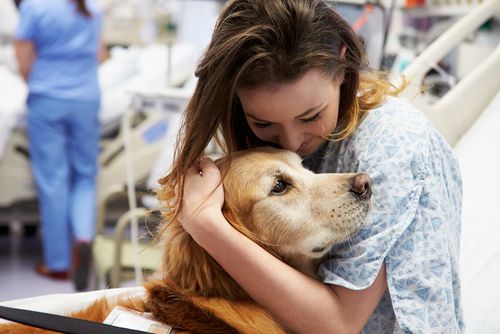What is Animal Therapy?
Several complementary therapies are applied in animal therapy to treat animals with a range of emotional, behavioural and physical disorders. Reiki, herbal medicine, kinesiology and massage therapy are common healing methods used in conjunction with veterinary treatment and medication to lessen the suffering of a house pet or farm animal.

What are the Benefits of Animal Therapy?
Animal therapy aids in the recovery of sick animals, allowing their bodies to resume normal function. Animal therapy, when combined with standard veterinary care, can do wonders for your pet's health. It can help with a variety of conditions that affect your pet's mind, body and spirit, such as:
- Trauma
- Separation anxiety
- Fear
- Food aggression
- Overprotectiveness of owner
- Stress
- Chronic pain
- Heart disease
- Loss of appetite
- Respiratory infection
- Pain related to medication or surgery
- Parasites
- Viral disease
- Loss of appetite
- Skin disease
- Arthritis
- Cancer
How Much Does Animal Therapy Cost in Hobart?
The cost of an animal therapy session in Hobart is influenced by a variety of factors, including the modality used, the location of treatment, the length of treatment, and the condition being treated. Prices are usually quoted per animal. Online animal therapy, after-hours emergency services and home visits will all have different pricing structures.
How Many Animal Therapists are There in Hobart?
Because most natural therapists in Hobart combine animal therapy with their core practice, data on the capital's total number of animal therapists is unavailable at this time. Most of them—if not all—have veterinary medicine degrees and are certified in the use of one or more natural therapies.
How Many People in Hobart Use Animal Therapy?
Despite the lack of statistics on how many Hobart pet owners use animal therapy, researchers for Animal Medicines Australia discovered that many Australian households spend more than two billion dollars per year on the health and wellbeing of their pets. Besides buying dietary supplements, many of them pay for training and behavioural therapy sessions for their pets.
























